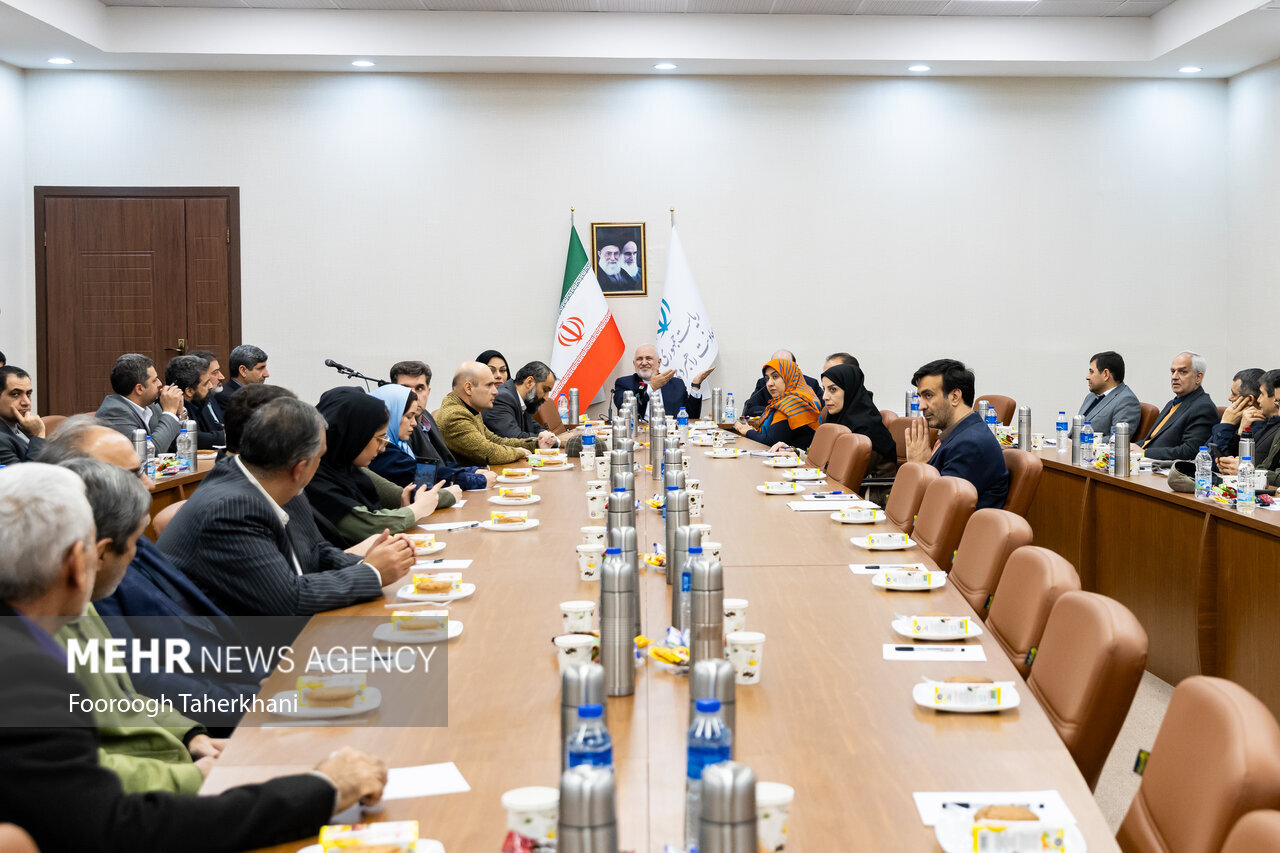Iran is no longer under serious security threats, says Zarif

TEHRAN – Iran’s Vice President for Strategic Affairs, Mohammad Javad Zarif, delivered a strong message regarding Iran's regional position and security during a gathering in Tehran on Monday.
Zarif stated that Iran has reached a point of strength where it is no longer vulnerable to foreign attacks, referencing a shift away from what he termed a "hit-and-run" policy of the past.
"Iran today, after 220 years, has reached a position where neither the United States, nor Israel, nor any other entity can even think of attacking Iran and getting away with it," Zarif stated. He emphasized that the era of "hit-and-run," where enemies could attack without facing serious consequences, is over. "Iran was trapped in the 'hit-and-run' policy for 170 years… But today, this era has come to an end."
Zarif acknowledged that threats still exist, but stated that the constant worry associated with them is no longer a reality. He emphasized that Iran is no longer in a position of weakness and continuous concern over foreign attacks.
Addressing the issue of regional Resistance against Israeli colonialism, Zarif asserted that Islamic Resistance movements were formed due to "occupation," not Iranian influence or weapons. He noted that these movements arose when Israel was at the peak of its power, driven by a “message of self-belief”, rather than Iranian military might.
"What created Resistance was 'occupation,' not Iran," Zarif stressed, adding that "It is the people of Lebanon and Palestine who are fighting for their rights." He said Israel is attempting to mischaracterize the Palestinian issue as a conflict between Iran and Israel, rather than acknowledging the core issue of occupation.
Zarif also commented on the Joint Comprehensive Plan of Action (JCPOA), highlighting that Israel opposed the agreement because it dismantled the "security narrative" that Israel had built around Iran. "Israel opposed the JCPOA... because the JCPOA dismantled the 'security narrative' that Israel had constructed around Iran. This was considered a threat to Israel because the game was not a security game," Zarif said.
Furthermore, he argued that if Israel was truly concerned about Iran's nuclear program, it should have supported the JCPOA, which he noted, "would at least delay Iran's nuclear program for 15 years." Zarif added that claims made in 2014 and 2015 that Iran was close to developing nuclear weapons should have made those making the claims feel secure once the JCPOA delayed the program.
The official made the remarks during a gathering with journalists, scholars, and analysts who had visited the Iranian Office for Strategic Affairs to launch the first round of monthly talks on regional and international issues.
Leave a Comment